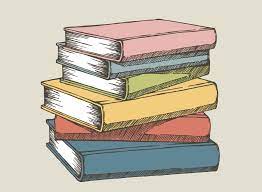
When I was young, art and literature were treated, for the most part, as extraneous fluff, an escape, entertainment for girls resting in their armchairs or for boys allergic to doing something useful, like cleaning the cow shed. Unless literature asserted a reformed Christian worldview, it had limited usefulness. You could find redemption where your hands met a pitchfork. Hands in a book, unless it was the Bible or Heidelberg Catechism, was idle dreaming. The odds were stacked against me developing any kind love for art and literature. To compound the matter, as a kid, I didn’t come by reading naturally. I was never a book worm or voracious reader like some kids. I was a slow reader and fell behind quickly. Later I learned my condition was not so uncommon and had a name. I believe I had dyslexia or, as the name implies, “a reading disability,” though I was never diagnosed. At the time, people called it “dumb,” which is dumb to say. I struggled, I cried, and I complained to my mom that I “just couldn’t get it” while the other kids were speeding ahead. The experts have further broken down dyslexia into several kinds. One term I discovered is “information-processing speed challenges.” In the words of Charlie Brown, “That’s it!” The phrase is descriptive, and the word “challenges” is appropriately non-judgmental and sympathetic, politically correct. I was a slow reader then and still am, though now I believe my reading pace has as much to do with taking time to ruminate over the words, sentences, or plot structure as to do with dyslexia. And so, because reading was a struggle, I never enjoyed it much as a kid. My mom tried to feed me some of her favorite titles (about girls stuck on farms) with worn bindings, which only worsened my interested. Then someone pushed a Hardy Boys book under my nose, an adventure. There seemed to be hundreds of Hardy Boys books. I’d finish reading one while my brother was on his third or fourth, but I was starting to enjoy reading. At some point, maybe in junior high, I remember coming upon a book called My Side of the Mountain by Jean George. (I notice a new edition of it has come out recently.) I liked the cover and the sound of the title, and once into it, I found the story resonated with a dream I had of living on my own in the wild, like Davey Crocket. I was so immersed in the story that I lost sense of time and place, and I thought I’d figured out something -- “Pick books that feel like you, and maybe you can become a better reader.” A few years later, I read the first ever adult novel that grabbed my imagination--The Grapes of Wrath. I can still feel what I felt reading it for the first time. I was Tom Joad in the Dust Bowl, squatting in the fields, holding the dry Oklahoma soil in my hand and watching it sift through his fingers. I felt the heat, the dust in my eyes and hair, heard the murmur of the engine of the truck that took the Joads to Calif Without realizing it, I had surrendered myself to Steinbeck's world. I'd let myself become vulnerable to the power of well-chosen words and the power of a story those words could create, how stories, even imagined ones, could transport me. And I liked the effect reading his novel had on me. I felt like a more empathetic and compassionate person, and for some reason I felt more confident. Contrary to opinions of my Calvinist subculture, I found my imagination wasn't a suspect stranger to be held at a distance. It was a well to be tap for all it was worth. I learned that good literature was not simply a distraction or an escape. A good book could open up a person 's world and make his life more meaningful. Even “non-religious” books could touch the spirit of a person and help him realize God’s image in himself.
0 Comments
Your comment will be posted after it is approved.
Leave a Reply. |
Archives
January 2024
Categories |
 RSS Feed
RSS Feed